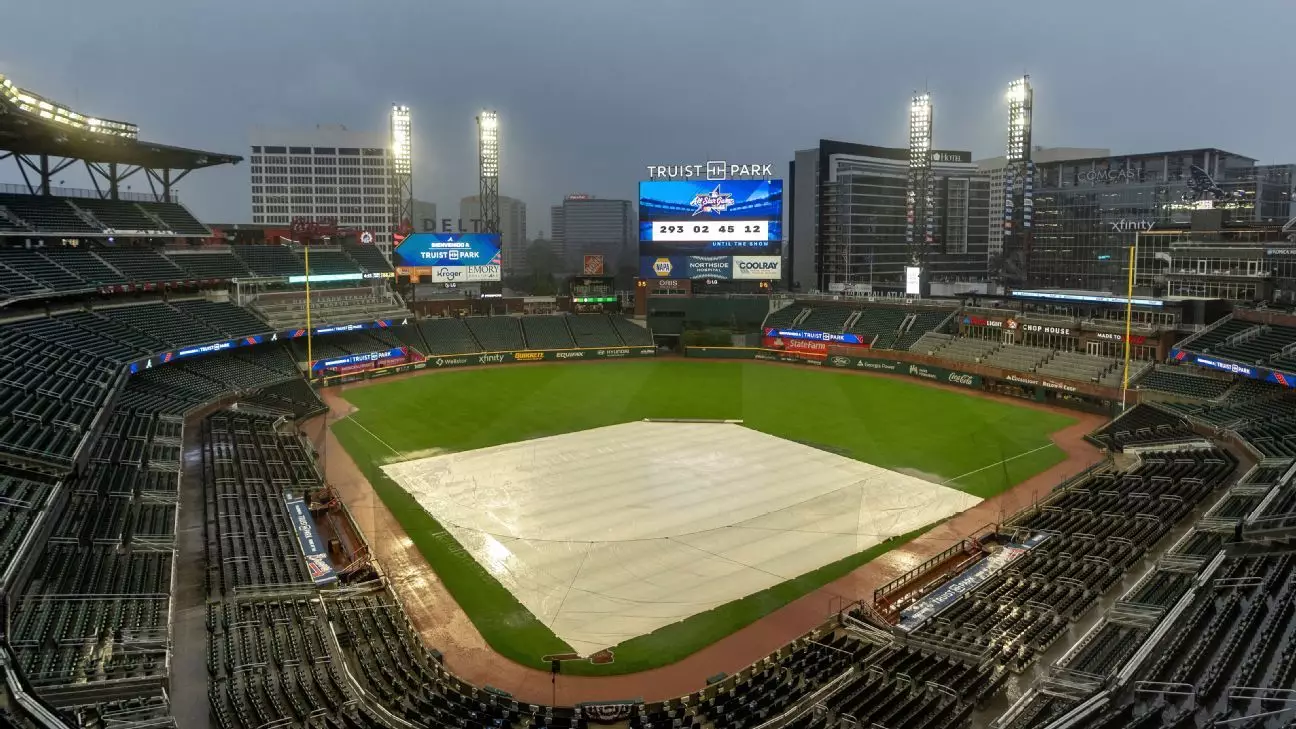In the high-stakes world of Major League Baseball, few events carry as much weight as the final days of the regular season. The New York Mets and Atlanta Braves recently faced an unexpected twist when their pivotal matchups were postponed due to inclement weather, directly impacted by the looming Hurricane Helene. This sudden turn of events has altered the trajectory of the wild-card race, heightening the tension as the season draws to a close. Decisions made now will ripple into the playoffs, complicating strategies for both teams.
It was Wednesday in Atlanta, and the atmosphere was rife with tension—not from the heavy rains but from the implications of the postponed games. Originally, these were to be two critical encounters determining who would gain entry to the postseason. Instead, as Mother Nature took center stage, both teams found themselves at the mercy of the elements, shifting their focus away from the diamond and toward an uncertain future. Mets manager Carlos Mendoza voiced the need for his team to move forward mentally, signifying an essential sports psychology tactic: focusing on what they can control. However, with dynamic competitors like the Milwaukee Brewers looming ahead, it’s clear that the Mets’ strategies will require tight adjustments.
The standings map an intricate dance between the Mets (87-70) and Braves (86-71), with the Arizona Diamondbacks lurking just behind. The wild-card race, as it stands, paints a complicated picture: two teams will earn spots in the playoffs, while one will be left grappling with “what-ifs.” As the teams dig into their final matches for the regular season, the stakes are elevated; even a single victory can pivot the balance. The Braves’ manager, Brian Snitker, expressed concern not just for the looming rain but for the potential disruption to their upcoming series against the Kansas City Royals—a critical element for his players seeking playoff momentum.
With the postponed games now rescheduled as a doubleheader on the following Monday, the Mets face a daunting travel schedule. After a weekend series in Milwaukee, they must jet back to Atlanta, a logistical challenge that could affect player performance. The reality of continuously shifting time zones and travel fatigue could play a role in how effectively the Mets can compete in such a condensed period. Mendoza acknowledged this, rationalizing that the unexpected off days could serve as an advantage, allowing players to recuperate. However, the question remains: can this respite compensate for the impending travel-induced weariness?
As all eyes turn to the weekend, the Braves must also contend not only with their immediate opponent but also with external factors like weather and travel. Effective preparation will take precedence, pushing teams to remain vigilant amid unexpected changes. Both the Mets and Braves appear poised for potential success, but each must remain adaptable, maintaining a flexible mindset to navigate not only opponents but also the chaotic nature of the final stretch.
As the specter of the playoffs nears, the dynamics of the Mets and Braves illustrate the fragility of timing in baseball. Postponements, weather, gameplay logistics—all of these elements can shift the fabric of a season in an instant. What was once a straightforward path to the postseason has morphed into a maze of uncertainty, where strategies must be meticulously crafted yet remain fluid enough to accommodate changing conditions. With Monday’s doubleheader on the horizon, both teams understand that while many factors lie beyond their control, the power of resilience and focus will ultimately dictate their futures.


Leave a Reply